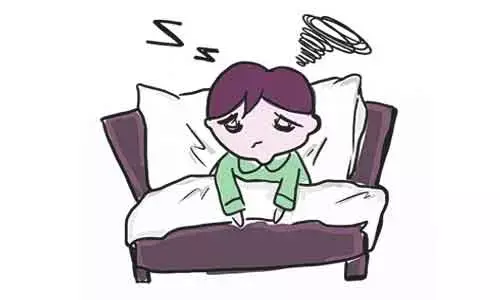- Home
- Medical news & Guidelines
- Anesthesiology
- Cardiology and CTVS
- Critical Care
- Dentistry
- Dermatology
- Diabetes and Endocrinology
- ENT
- Gastroenterology
- Medicine
- Nephrology
- Neurology
- Obstretics-Gynaecology
- Oncology
- Ophthalmology
- Orthopaedics
- Pediatrics-Neonatology
- Psychiatry
- Pulmonology
- Radiology
- Surgery
- Urology
- Laboratory Medicine
- Diet
- Nursing
- Paramedical
- Physiotherapy
- Health news
- Fact Check
- Bone Health Fact Check
- Brain Health Fact Check
- Cancer Related Fact Check
- Child Care Fact Check
- Dental and oral health fact check
- Diabetes and metabolic health fact check
- Diet and Nutrition Fact Check
- Eye and ENT Care Fact Check
- Fitness fact check
- Gut health fact check
- Heart health fact check
- Kidney health fact check
- Medical education fact check
- Men's health fact check
- Respiratory fact check
- Skin and hair care fact check
- Vaccine and Immunization fact check
- Women's health fact check
- AYUSH
- State News
- Andaman and Nicobar Islands
- Andhra Pradesh
- Arunachal Pradesh
- Assam
- Bihar
- Chandigarh
- Chattisgarh
- Dadra and Nagar Haveli
- Daman and Diu
- Delhi
- Goa
- Gujarat
- Haryana
- Himachal Pradesh
- Jammu & Kashmir
- Jharkhand
- Karnataka
- Kerala
- Ladakh
- Lakshadweep
- Madhya Pradesh
- Maharashtra
- Manipur
- Meghalaya
- Mizoram
- Nagaland
- Odisha
- Puducherry
- Punjab
- Rajasthan
- Sikkim
- Tamil Nadu
- Telangana
- Tripura
- Uttar Pradesh
- Uttrakhand
- West Bengal
- Medical Education
- Industry
Boys with sleep problems at increased risk of musculoskeletal pain

Researchers have found in a prospective cohort study study that Boys with sleeping problems were significantly more likely to develop musculoskeletal pain, including persistent pain.The study has been published in the European Journal of Pediatrics.
This is the first large population-based study that has prospectively investigated the relationship between sleep problems and onset of musculoskeletal pain in school-aged children.• Adults with sleep problems are at higher risk for onset of musculoskeletal pain, but the evidence is less clear for children.
The researchers investigated whether children with sleep problems are at higher risk for onset of musculoskeletal pain and explored whether sex is a modifier of this association.
The researchers investigated the associations between sleep problems at baseline and new onset of both musculoskeletal pain and persistent musculoskeletal pain (pain lasting > 3 months) 1 year later using logistic regression in a prospective cohort study of Australian schoolchildren (n = 1239, mean age 9 years). The potential modifying effect of sex was also assessed.
The researchers found that one-year incidence proportion for musculoskeletal pain onset is 43% and 7% for persistent musculoskeletal pain. Sleep problems were associated with musculoskeletal pain onset and persistent musculoskeletal pain onset in boys, odds ratio 2.80 (95% CI 1.39, 5.62) and OR 3.70 (1.30, 10.54), respectively.
No association was found between sleeping problems and pain in girls.
The limitations of the study were that the secondary data analysis of a cohort not specifically designed to study link between sleep problems and musculoskeletal pain.
The authors concluded that rates of musculoskeletal pain are high in children. Boys with sleep problems are at greater risk of onset of musculoskeletal pain, but girls do not appear to have higher risk. Consideration of sleep health may help prevent persistent musculoskeletal pain in children.
A new study has revealed that children, especially boys with sleep problems, were at increased risk for the development of persistent musculoskeletal pain.
For further reference log on to:
Andreucci A, Campbell P, Mundy LK, Sawyer SM, Kosola S, Patton GC, Dunn KM. Sleep problems increase the risk of musculoskeletal pain in boys but not girls: a prospective cohort study. Eur J Pediatr. 2020 May 12 [Epub ahead of print].
Dr Kamal Kant Kohli-MBBS, DTCD- a chest specialist with more than 30 years of practice and a flair for writing clinical articles, Dr Kamal Kant Kohli joined Medical Dialogues as a Chief Editor of Medical News. Besides writing articles, as an editor, he proofreads and verifies all the medical content published on Medical Dialogues including those coming from journals, studies,medical conferences,guidelines etc. Email: drkohli@medicaldialogues.in. Contact no. 011-43720751


